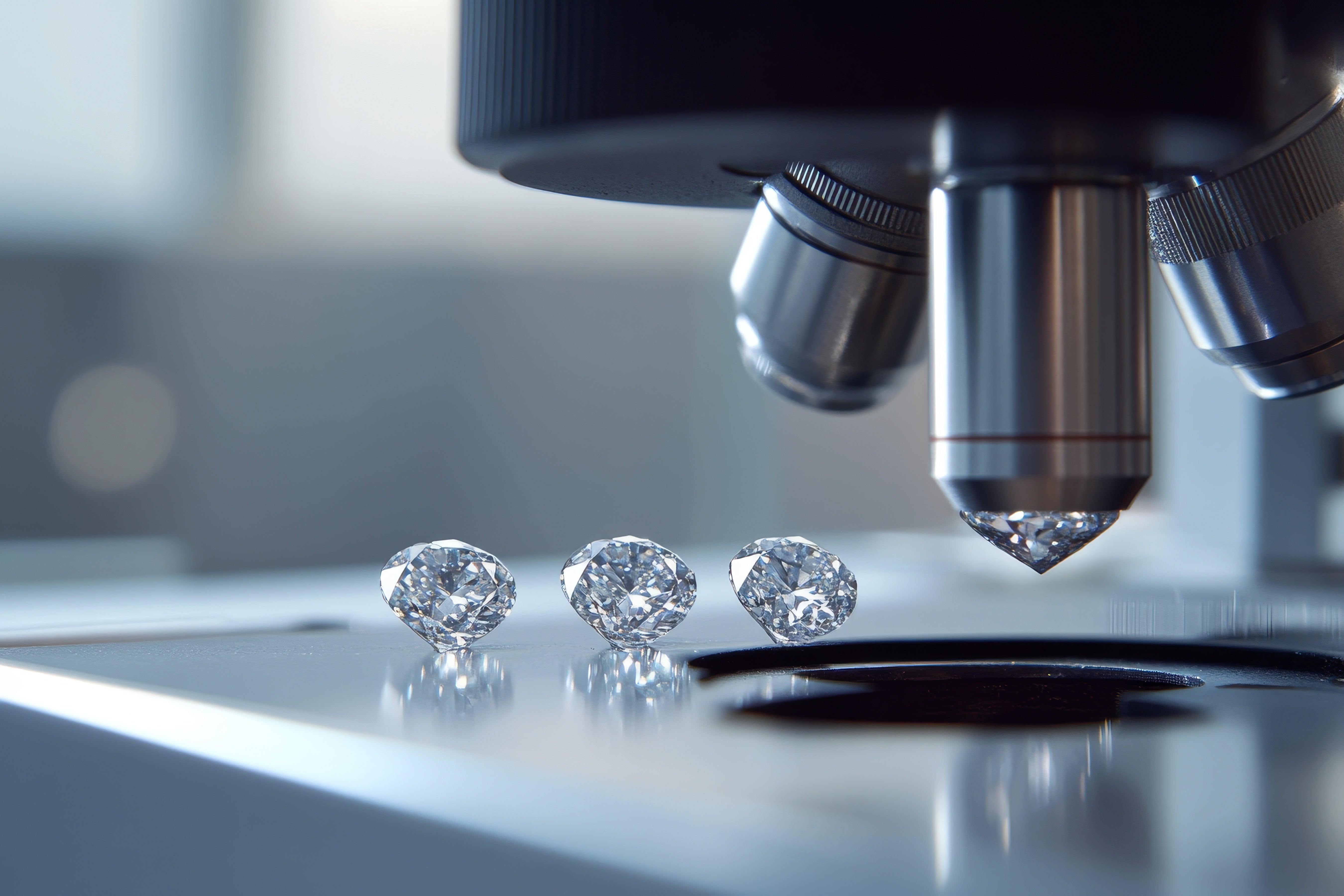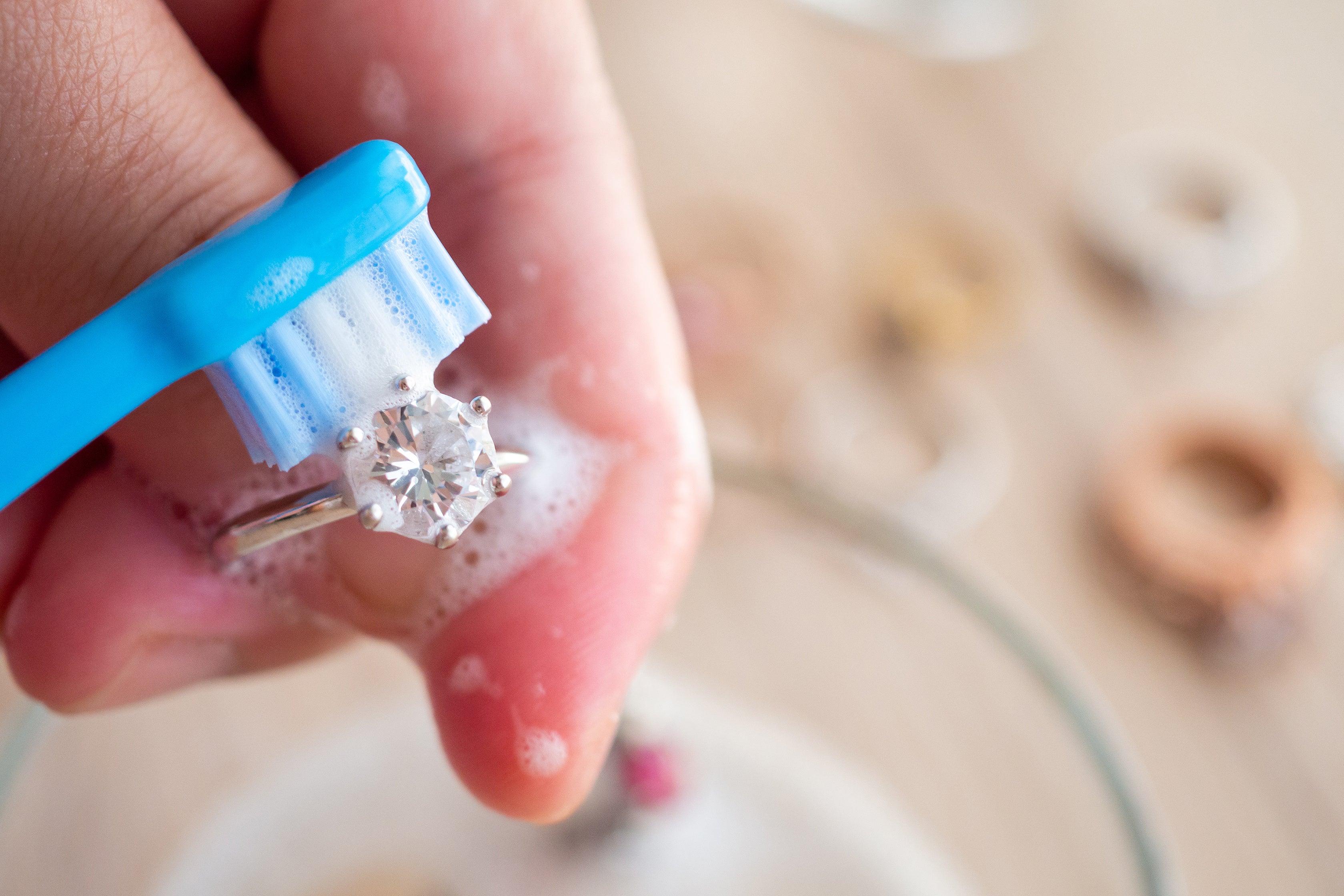Blog: Lab Grown Diamonds FAQs

💎 Lab Grown Diamond FAQs
We have curated a list of commonly asked questions from our clients. This post is designed to provide clarity and address any questions or uncertainties you may have regarding lab-grown diamonds.
1. What is the difference between a lab grown diamond and a natural mined diamond?
Lab grown diamonds are real diamonds. They share the same chemical composition, crystal structure, and optical properties as mined diamonds.
The only difference lies in their origin: natural diamonds are formed deep within the Earth over millions of years, while lab-grown diamonds are created in high tech laboratories that replicate those same natural conditions.
Lab grown diamonds are becoming increasingly popular due to their ethical sourcing, lower environmental impact, and typically more accessible price point.
2. Is there any physical difference between lab grown and natural mined diamonds? How can you tell them apart?
Chemically, physically, and optically, lab grown and natural diamonds are virtually identical. They share the same hardness, brilliance, and durability.
Differences can only be detected using specialised equipment that can identify subtle growth patterns, which are invisible to the naked eye.
Lab grown diamonds are designed to be visually and physically indistinguishable from mined diamonds.
3. Are lab grown diamonds certified?
Yes. Lab grown diamonds are certified by trusted gemmological laboratories in the same way as natural diamonds.
We exclusively offer diamonds certified by GIA, IGI, or HRD; these certificates assess the diamond's quality, authenticity, and characteristics.
Always avoid uncertified diamonds or those with only in-house certificates.
4. How can I ensure I'm buying a natural diamond and not a lab grown diamond?
To confirm you're purchasing a natural diamond, always request certification from a trusted lab such as GIA.
The certificate will clearly state whether the diamond is natural or lab grown. Most certified diamonds are laser inscribed with a matching certificate number, providing an extra layer of authenticity.
Avoid diamonds without certification or inscriptions.
5. Do lab grown diamonds hold their value?
Lab grown diamonds do not retain resale value unlike natural diamonds might.
As production methods become more efficient and supply continues to grow, prices of lab grown diamonds are steadily declining. This abundance in availability means they are not considered investment pieces.
Lab grown diamonds should be purchased for their beauty and enjoyment, not for resale or long erm financial value.
6. Can a lab grown diamond pass a diamond tester?
Yes. Both lab grown and natural diamonds will test positive on a standard diamond tester.
However, testers cannot differentiate between the two. To confirm whether a diamond is lab grown or natural, specialised gemmological testing is required.
7. How much cheaper are lab grown diamonds than mined diamonds?
Lab grown diamonds are typically 70–90% more affordable than mined diamonds of equivalent size and quality.
The larger the diamond, the greater the price difference.
8. Do lab grown diamonds last as long as mined diamonds?
Yes. Lab grown diamonds have the same hardness (10 on the Mohs scale) and chemical structure as natural diamonds.
They are just as durable and will last a lifetime, or more.
9. Are natural diamonds better quality than lab grown diamonds?
Not necessarily. Both lab grown and natural diamonds can range in quality from poor to exceptional.
The cut, clarity, colour, and carat weight determine a diamond’s quality.
10. Lab grown or natural diamond — which one should I choose?
It depends on your preferences.
💎 If you want the biggest sparkle for your budget, lab grown diamonds are a fantastic option.
💎 If long-term value, sentimentality, or future upgrades matter more, a natural diamond might be better.
At Layla Diamonds, we don’t sway clients either way.
11. Can you choose the 5Cs with a lab grown diamond?
Absolutely. The 5Cs — Cut, Colour, Clarity, Carat, and Certification; apply just as much to lab grown diamonds as natural ones.
GIA certified lab diamonds are slightly rarer, especially for fancy shapes, so you may find more selection through IGI.
We always recommend prioritising cut quality over certificate provider when choosing a lab grown stone.
12. Do lab grown diamonds go cloudy over time?
No. Just like natural diamonds, lab grown diamonds maintain their sparkle and clarity if properly cared for.
If your diamond looks dull or murky over time, it’s likely due to surface residue from lotions, soaps or everyday wear. A simple clean will restore its brilliance.
Refer to our blog post “Engagement Ring Aftercare” for cleaning tips.
13. Is it worth buying a lab grown diamond for your partner?
Definitely, especially if you're looking for a stunning, meaningful ring without the hefty price tag.
There is no visible difference between lab grown and natural diamonds. But if you want something with potential heirloom value, a natural diamond may be more appropriate.
Note: Natural diamonds should still not be viewed as investments. For lasting value, gold or luxury watches may be a better route.
14. Are lab grown diamonds fake?
Not at all. Lab grown diamonds are real diamonds, not imitations.
However, they are not the same as simulants like cubic zirconia or moissanite, which only look similar.
Always ensure lab grown diamonds are clearly disclosed at the time of purchase and stated on your invoice or certificate.
15. Which is better: HPHT or CVD lab diamonds?
Both HPHT (High Pressure High Temperature) and CVD (Chemical Vapour Deposition) methods produce real lab-grown diamonds. There’s no visual difference to the naked eye when quality is high.
Here’s a simple comparison:
| Method | Pros | Cons |
|---|---|---|
| HPHT | Mimics natural growth; high clarity | Slight blue tint risk; more energy-intensive |
| CVD | Eco-friendlier; more scalable | May show brown tint; often needs post-treatment |
We carefully select each diamond for brilliance, symmetry, and polish; regardless of the method used.
16. Are lab grown diamonds ethical?
Yes. Lab grown diamonds are created without mining, making them an ethical and sustainable choice.
They are free from many of the environmental and social issues associated with traditional diamond mining.
17. Can lab grown diamonds be insured?
Yes, lab grown diamonds can be insured just like mined diamonds.
Make sure your valuation or appraisal clearly states the diamond type and certificate number.
18. Can lab diamonds be reset or resized later?
Absolutely. Lab grown diamonds are just as durable as natural ones and can be resized, reset, or remounted for future redesigns.
19. Do lab grown diamonds come in fancy colours?
Yes! Lab grown diamonds are available in a range of colours including pink, yellow, and blue — often at a more accessible price point than mined coloured diamonds.
20. Are lab grown diamonds good for engagement rings?
They’re perfect for engagement rings.
They offer beauty, durability with the added bonus of ethical and sustainable sourcing.
💬 Still have questions? Reach out via WhatsApp on +44 207 430 9900 or send us a DM on Instagram@layladiamonds — we’re here to help.



